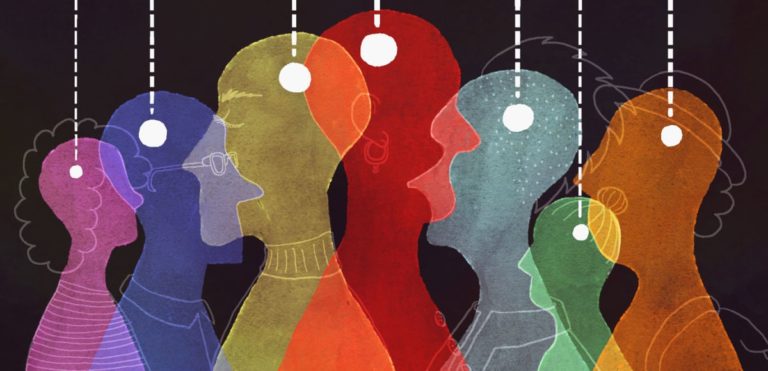A few months back when I flogged my latest book on a cross-country tour, a young woman in Toronto—Muslim with the full hijab, a student, and born in Saudi Arabia, attended my talk.
According to the assumptions of “modern” identity politics, someone in that demographic—female, a person of colour, single, young, lives in downtown Toronto, attends university, non-Christian, foreign-born—should be of the belief that, for example, compassion is signified by higher taxes; that right-leaning political parties cannot accommodate someone with her religious beliefs; or that students naturally favour more government intervention in any number of areas.
After chatting with her, it turned out the young lady was a partisan (Conservative); not a fan of government intervention (libertarian); and annoyed with campus colleagues and others who assume her views originate with her skin colour, gender, religion, or head covering—and that somehow, people with certain surface similarities must think alike. Naturally, they were surprised when she didn’t fit their preconceived stereotype.
That university student had her views pegged in advance by some people because of the prevalence of identity politics. That’s where it is assumed your gender, race, religion, age, wealth (or lack thereof) will inevitably and deterministically shape one’s views, or will restrict one’s potential for compassion for others who are “different” in some irrelevant way.
The assumptions are regressive but the results of such thinking were on display again recently.
Ryerson University released a “study” that noted “Canada’s newspaper columnists are mostly male and middle-aged.” The study’s author e-mailed me as part of his survey. I ignored him (though I was anyway listed), as the assumption behind the question was obvious and ludicrous: your age and gender might explain your writing— this as opposed to deeply pondering a matter and availing oneself of facts.
Of course, that’s not what the Ryerson report concludes, explicitly, but what other meaning can one draw from those who make a big deal about such surface characteristics? I’m surprised Ryerson didn’t add skin colour to the list but that would have made its survey even more obviously a throwback to an earlier age, when how you looked was wrongly assumed to guide how you think, your capabilities or how you act.
One who did add skin as an important characteristic was Calgary Mayor Naheed Nenshi. In a speech the other day, Nenshi told the assembled crowd that City Hall was “lousy at promoting a diverse workforce.” He noted that among his top six managers, not one was a woman and that of the 34 next most senior city managers, “I can think of one person from a visible minority.”
In an immigrant-based society, diversity (including in the statistics) will naturally occur as those in existing jobs move on. But the problem with a focus on surface characteristics—and the belief they matter to columns or careers—is the underlying assumption that only “similar” people can truly understand or empathize with others that possess some comparable characteristic.
That notion is noxious. History is replete with examples of those who effect change and are not bound by their upbringing, skin, gender or other ultimately irrelevant factors.
For instance, while aspects of Franklin Roosevelt’s New Deal did not in fact help end the Great Depression (and in some cases exacerbated it), his motivation to help the poor was obvious. But identity politics cannot explain how an old, wealthy Caucasian like Roosevelt could care about people at a completely different station in life, i.e., the poor.
Or ponder other examples: The (white) 18th/19th-century English parliamentarian and abolitionist William Wilberforce spent his life to abolish (mainly black) slavery in the British Empire, and succeeded; the (black) Nelson Mandela urged reconciliation between all South Africans; Jewish Americans involved in the civil rights movement worked to bolster American blacks; a rather male upper-crust British Conservative party chose female Margaret Thatcher as party leader.
The attachment to viewing people as part of a group and not as individuals—someone else thinks you belong to a certain cohort and so everyone in that group supposedly think and feel alike?—is odious, divisive and dangerous. It subsumes individual hearts and heads to group assumptions and groupthink. That is the presumptuous belief the young Muslim lady in Toronto that I met regularly encounters. It is illiberal thinking falsely masquerading as liberalism.
So how is it possible for people of a different age, race, background, orientation, religion, income, culture or countries to understand and have compassion for others? That’s easy: Because they possess empathy—and they think.







